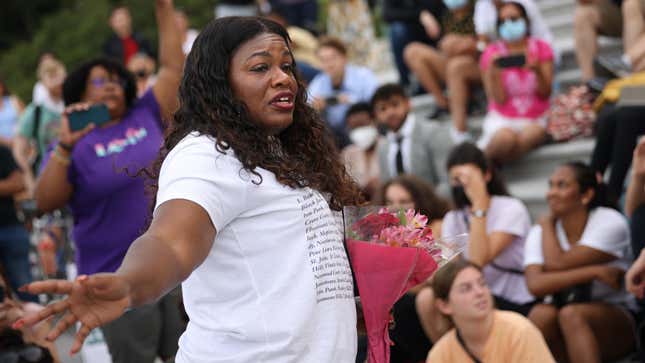
The Biden administration issued a limited freeze on evictions throughout most of the United States on Tuesday, saving as many as 3.6 million Americans from losing their housing. While not as comprehensive as the nationwide moratorium that expired on Monday, this new order, also issued by the Centers for Disease Control and Prevention and set to expire Oct. 3, will apply to anywhere that’s experiencing “substantial” and “high” covid transmission. As NPR points out, that basically applies to most of the U.S. at the moment.
The move comes four days into a protest staged by Rep. Cori Bush in which the Missouri Democrat and others slept on the steps of the Capitol Building in Washington in order to call attention to the impending housing crisis—the worst since the 2008 recession, the Associated Press warned last week—and put pressure on her fellow lawmakers to do something about it. This new freeze on evictions might not have happened had Bush not taken such action, but the representative told Politico that she doesn’t “care about the spotlight. It doesn’t bother me, it doesn’t make me feel good. I just want to see this happen for my people.” Also per Politico, in a piece that detailed how exactly Bush, a freshman Congressperson, was able to make this happen:
As a long line of advocates-turned lawmakers have often encountered before her, Capitol Hill is a uniquely stressful stage, but Bush bet that her tactics as an organizer could bring her success in Washington. That bet paid off on Tuesday — at least for now.
“Activists in Congress — so expect for things to be different than what maybe people are used to,” she told reporters on Tuesday night, as she prepared to wrap her protest and return home. “We don’t have the same eyes, we don’t have the same background or the same agenda as some others.”